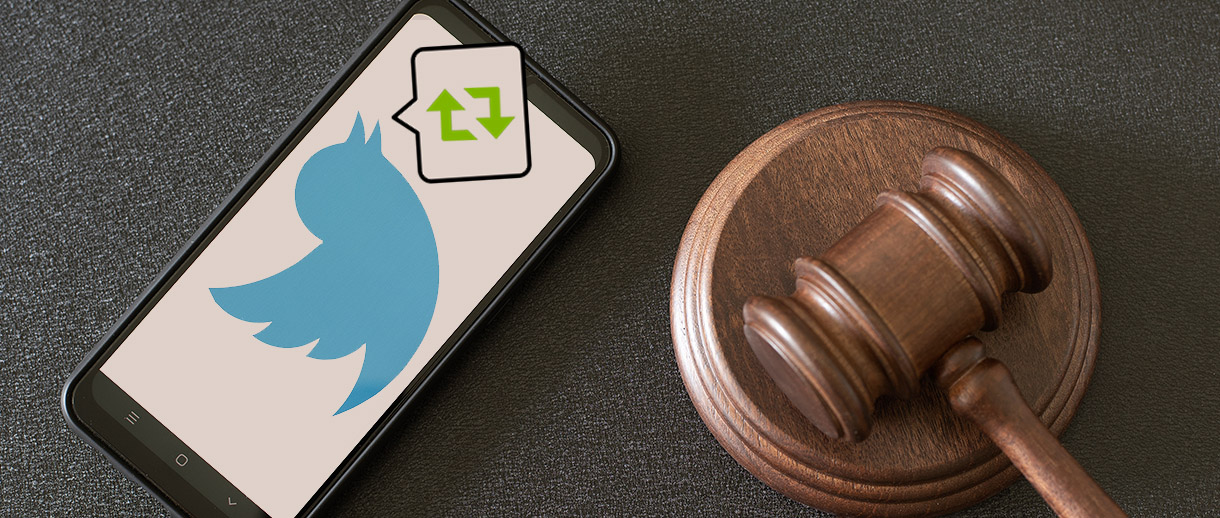
In a recent Delhi High Court judgement1, the Court laid the foundational stone on the jurisprudence of retweeting and whether it amounts to ‘publication’ for the offence of defamation under Section 499 of the Indian Penal Code, 1860 (“IPC“). It was held that every retweet of defamatory imputation would ordinarily amount to ‘publication’ under Section 499 of the IPC, and it is ultimately for the person so aggrieved to decide as to which retweet caused more harm to his reputation, and inter alia lowered his moral or intellectual character or his credibility among the members of society.
Background and Contentions of the Parties
A Youtuber, Dhruv Rathee, had posted a tweet on Twitter (Now, ‘X’) which claimed that members of the BJP IT Cell had paid money to a third party to have him defamed. The Chief Minister of Delhi, Arvind Kejriwal, retweeted this post, and has been accused of defamation for such retweet. Arvind Kejriwal approached the Delhi High Court for seeking setting aside the summoning order of the Trial Court and an order of the Sessions Court which dismissed his revision petition.
It was inter alia contended on his behalf that the best case alleged by Respondent no. 2, Vikas Pandey, is that the petitioner has retweeted a link of some video, of which neither the petitioner was creator/author nor publisher of the same, and thus, essential ingredients of defamation are not attracted in the present case as the same would not amount to publication in terms of ingredients of Section 499 of the IPC. While Respondent No. 2 contended that without there being any proof in support of allegations levelled against Respondent no. 2, the petitioner, who is the Chief Minister of Delhi, has retweeted the video, shared by Dhruv Rathee on his YouTube channel, without verifying its authenticity and due to the large following of the petitioner, the video had reached a large number of people not only in India, but internationally also. On these grounds, it was argued that the impugned orders suffer from no infirmity.
Adjudicating a Grey Area of Law
The Court noted that as communication has shifted from traditional forms of speech to the digital space, the law must adapt to effectively address the new weapons of harm to reputation, particularly in the context of posts and reposts on social media platforms. Unlike private conversations, digital content posted and reposted on social media has the potential for immediate and widespread dissemination. The virality and permanence of online content amplifies its impact, making it a tool for causing reputational harm.
The Court observed that limited jurisprudence has evolved till date regarding ‘retweet’ or ‘repost’ being covered under meaning of ‘publication’. The law on defamation on the one hand protects one person’s reputation who is the complainant and on the other, a person’s fundamental right to freedom of expression. The Court further observed that freedom of expression and the use of cyberspace and social media for the said purpose, especially by persons who hold positions of authority and have huge following on their social media accounts, needs to be kept in mind while balancing the contrasting approaches to be adopted towards both the parties, when they approach a Court to determine their rights.
Implications of Tweets by Public Figures
The Court noted that when a public figure tweets a defamatory post, the ramifications extend far beyond a mere whisper in someone’s ears. In social media, where information travels at lightning speed and has the potential to reach a global audience, the act of tweeting transforms the communication into a form of public publication. The audience is not restricted to those physically present or within immediate earshot but encompasses the vast and diverse online community. In the digital age, the boundaries of ‘publication’ have expanded.
The retweeting of the content in the present case which was originally created by some other person who did not have as much public following as the present petitioner, by virtue of the petitioner retweeting that content, represented to the public at large that he believed the content created by another person to be true. It has to be held so since the general public would ordinarily believe that the person retweeting such content on his own Twitter account, must have understood, verified and believed the content to be true. The critical issue to be taken note of in such circumstances is the fact that the petitioner who retweeted the content had much larger following than the original content creator, thus, having multiplied potential of spreading the defamatory content to a much larger audience. The background of the petitioner, being a Chief Minister, necessitates an acknowledgment of the inherent sense of responsibility that comes with such a significant political role.
In this background, it was held that retweeting or reposting defamatory content, without any disclaimer as to whether the person so retweeting agrees or disagrees or has verified the content so posted or not, and as to whether he projected to the world at large, who care to follow him, that he believes the content to be true so shared, a person would be republishing the original defamatory content which has the potential of lowering the moral or intellectual character or credit of a person.
While examining if every retweet would attract the offence of defamation, it was noted that if a defamatory imputation is retweeted by an individual with negligible followers or very limited influence, the impact on the complainant’s reputation may be less severe or may not even be of a nature to fall within the ambit of offence of defamation. Since the limited or negligible reach of such a person would reduce the potential for the defamatory content to gain any significance among the right thinking members of the society, this would be a matter of trial.
Conclusion
Therefore, the Court found no infirmity with the impugned orders passed by the Trial Court as well as the Sessions Court and the petition was dismissed. In view of the above, it is pertinent that social media users be cognizant of their reposts/retweets and undertake independent verification of such content as the publication of such repost/retweet, if contains defamatory content, could amount to defamation. At the very least, a repost/retweet should incorporate a disclaimer that the correctness/genuineness of the content has not been verified by the individual. Public figures, or users with a large public following, should especially exercise due diligence and care in disseminating information on social media platforms.
1 Arvind Kejriwal vs. State and Anr., CRL.M.C. 6347/2019
















